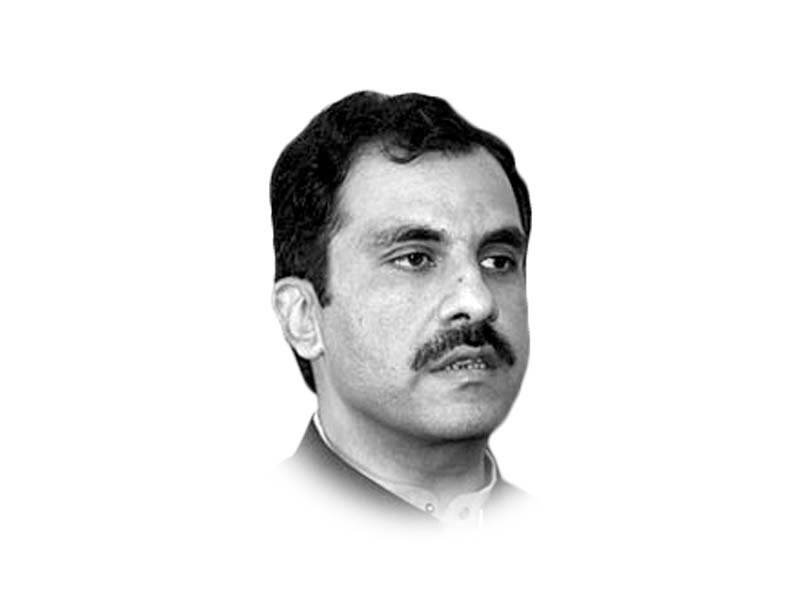
The well-known American civil rights activist, Maya Angelou, had wisely said that “Prejudice is a burden that confuses the past, threatens the future, and renders the present inaccessible.” Every citizen of this country lives in a present with burdens of the past and dreams for a future and every one of them has the constitutional right to do so. That is what the right to life would intellectually mean. But as we, the dwellers of Balochistan, look back through, we find a past that has ever been based on discrimination, yet we dream for a future and that is our constitutional right. As we try to understand our living in the present, we find the hallucinations such as Pak-China Gwadar University at Lahore but still we dream for a future and that is our constitutional right. As we look into our future, we stop dreaming as we find no future and this is where we are denied our constitutional right. We end up with a discriminated past; confused present and inaccessible future.
Not even the base common sense could harmonise with the textual burden found within annals of what is meant by Pak-China Gwadar University, Lahore — of which the semantic without are not friendly, let alone the syntactic within. It could have been named something else than this and could have been smoothly established, that too through CPEC kitty, which Balochistan could have never known. But it rings alarms, though having rung for quite some time now without any audible impact, and resurfaces the apprehensions people hold in terms of CPEC and its benefits for Balochistan, especially around a theme such as Gwadar-at-Lahore.
It reminds us — the dwellers of this ill-fated province — of those colonial times when British Raj would employ their Civil Servants in some administrative area and the seat of such Administrator would be established in another area. Examples include Kachhi at Dhadar; Zhob at Loralai; Kalat at Khuzdar, etc. The reasons were the natural variations, tribal classifications and sometimes geographical and geostrategic priorities. But back then, we were a colony and the Whites had enslaved us. Colonial “at” doctrine was more natural and understandable when compared to the modern day Gwadar-at-Lahore which denies the yardsticks such as natural, tribal, geographical or geostrategic. This pushes us to coin the neo-colonial legacy of brazen discrimination which is not acceptable against a reality that when “both cows and buffaloes give milk so why discriminate”.
On the intellectual side, who could accept this just action of an unjust intention? Balochistan requires attention and rebuilding and to start this, it all begins and should begin with assisting, helping and reforming its education sector which is under severe stress. The need of universities as much as it is justifiable in case of Balochistan, it could never be more justifiable elsewhere. Assisting the existing universities with resources such as financial, human, capital, etc is again something atop compared to fair analysis with other universities of the sister provinces.
On the civil rights, equity and justice side, it is once the province which is hard hit by calamities both man-made in the form of mercurial law and order and nature-imposed in the form of droughts, floods, etc. The havoc of multidimensional poverty has shredded the province into pieces of hunger, malnutrition, illiteracy and consequential crimes. Here with us, education is fast becoming a luxury that very few would be affording the near threatening future. Coupled with the issue of being a province with strategic depth and so much of strategic natural resources, the triangulation of security state continues.
It was like this burden of discriminated past was not enough and another one was just so carelessly imposed. Amidst all this past-present and future brouhaha, the bewilderment is hastened and confusion is even worse confounded, at least for us, to now comprehend what does Gwadar-at-Lahore, actually, mean?
Published in The Express Tribune, August 7th, 2023.
Like Opinion & Editorial on Facebook, follow @ETOpEd on Twitter to receive all updates on all our daily pieces.





1716998435-0/Ryan-Reynolds-Hugh-Jackman-(3)1716998435-0-165x106.webp)


1729685382-0/Untitled-design-(57)1729685382-0-270x192.webp)


1730706072-0/Copy-of-Untitled-(2)1730706072-0-270x192.webp)
COMMENTS
Comments are moderated and generally will be posted if they are on-topic and not abusive.
For more information, please see our Comments FAQ